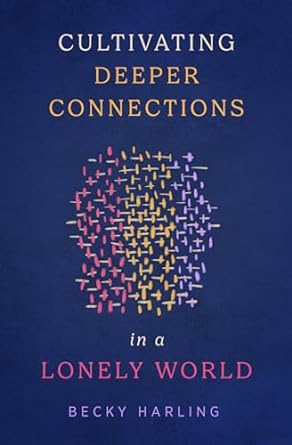What Is Yule and What Does it Have to Do with Christianity?

It’s that time of year again. The Holiday season is upon us! Yule logs for your fireplace as well as yule cakes are in many stores and bakeries. The familiar carol, “Deck the Halls” contains the line, “See the blazing yule before us.” As you sing the carols or pass by yule logs and yule cakes in your local grocery store, you might wonder about the yule meaning. What does yule have to do with Christmas and the birth of Christ? Should we as believers embrace any traditions tied to yule?
While yule traditions were rooted in paganism, they show us that mankind is craving the truth about Christ and the light He brings into the world. Over time, yule came to be associated with Christmas and celebrating the birth of Christ.
Yule Meaning
The word “yule” is a Scandinavian word passed down from generation to generation and it literally means “parties.” Others say it refers specifically to the winter “festival” celebrated by the Vikings.
The yule festival was a pagan holiday that began on winter solstice and lasted for a number of days. Winter solstice happens on the shortest day of the year. Tired of long dark days, the Vikings partied in anticipation of the return of the sun and longer days. The celebration often began with the slaughtering of livestock like boar and then a huge feast followed. A yule log was lit on fire and burned for the entirety of the festival.
Northern Europeans, like Scandinavians and Germanic people, partied during the yule celebration for 12 full days. These midwinter parties included drinking, storytelling, and at times sacrificing animals. The pagan holiday was viewed as a time to say goodbye to the old and embrace the new. To appease the gods, the Vikings held ceremonies that included sacrifices of plants and animals. Huge bonfires were lit during the festival which eventually evolved into the yule log. A log would be hollowed out and burned for at least 12 days to bring light into the darkness. The custom of the yule log eventually spread all over Europe.
Another interesting part of the yule festivals was the making of oaths. Similar to our custom of making New Year’s resolutions, the Vikings made oaths before the gods during the Yule celebrations.
What Does Yule Have to Do with Christianity?
When missionaries went to convert the Vikings, they looked for a way to introduce Christ. They knew that scripture teaches that God has set eternity in people’s hearts (Ecclesiastes 3:11). In other words, mankind is born with a God-given awareness. Like the Apostle Paul who told the people in Athens, “People of Athens! I see that in every way you are very religious. For as I walked around and looked carefully at your objects of worship, I even found an altar with this inscription: To an unknown God” (Acts 17:22) The Missionaries followed Paul’s example and observed the myths associated with Yule celebrations and then showed the pagan Vikings how Christ had come as the ultimate light of the world. And, He Himself would be the perfect sacrifice.
In the 10th century the Norwegian King, Haakon the Good who believed in Christ and became a Christian, redefined yule meaning by calling for a 3-day celebration of Christ’s birth. As we consider the history of yule, we might wonder, is it right to celebrate a holiday that had roots in paganism?
Here are a few thoughts to consider in answer to that question:
Jesus Redeems Everything in Our lives… Why Not a Pagan Holiday?
Jesus came to redeem (to buy back) and to restore (to put back in rightful position). It makes sense then that He can redeem a pagan holiday and restore it to a holiday of rightful worship of Jesus as our King. Every person has a sense or a picture of who they think God is. Jesus came to restore our picture of God. He came to show us the truth about the Father. He redeems our lives from the pit of worshipping idols and restores us to right relationship with Him. Someday, Jesus will come again and redeem all things. Until that day, all of creation groans for His return. (Romans 8:19-22). The pagan celebration of yule is an example of all of creation groaning. The early Vikings groaned in a sense for more light. When the missionaries came and introduced Jesus, God bought back and restored yule to its rightful place; A celebration of the Son of God.
Jesus Came as the Light of the World into Our Darkness
The prophet Isaiah wrote, “The people walking in darkness have seen a great light” (Isaiah 9:1). The Vikings got weary of the long dark days. Who could blame them? As soon as the winter solstice came they knew they had turned a corner towards longer days of sunlight. With the turning, their celebrations began. Similarly, we get weary of living in a dark world. Christmas is a wonderful holiday to turn our attention and celebrate Jesus as the true light of the world.
Lighting a yule log can remind us that Jesus came as the light of the world. Light brings hope into darkness! The prophet Isaiah wrote, “Arise shine for your light has come, and the glory of the LORD rises upon you. See, darkness covers the earth and thick darkness is over the peoples, but the LORD rises upon you and his glory appears over you. Nations will come to your light and kings to the brightness of your dawn” (Isaiah 60:1-3). What the Vikings were craving was eternal light. They were craving the light of Jesus without fully understanding.
This Christmas, if you put a yule log in your fireplace or purchase a yule log cake at the grocery store, pause and worship Jesus, who came as the light of the world. As you worship Jesus for coming as the true light, you can also look forward to His second coming. When He comes again, His light will shine on the whole world and every wrong will be made right.
Jesus Came as the Perfect Sacrificial Lamb
Every pagan religion seems to have a sacrifice to appease the gods. During Yule celebrations, the Vikings sacrificed a variety of animals to appease their god, Odin. They had a concept of God but not the true Jehovah, God. Jesus came as the perfect sacrificial lamb to appease the wrath of Jehovah, God. At times we forget the wrath of God against sin because it’s uncomfortable. However, the Apostle Paul wrote, “The wrath of God is being revealed from heaven against all ungodliness” (Romans 1:18). In another section of Romans, the Apostle wrote, “But God shows his love for us in that while we were still sinners, Christ died for us. Since, therefore, we have now been justified by his blood, much more shall we be saved by him from the wrath of God” (Romans 5:8-9 ESV). Jesus stood in the gap for us to receive the wrath of God. He is our peace offering. Because of His finished work on the cross and resurrection, we can have peace with God. If we have received Christ, we have been justified through faith and peace with God is ours for the asking. (Romans 5:1). When the pagan Vikings sacrificed animals to appease the gods, they didn’t realize that the perfect Lamb of God had already been sacrificed so that they would have peace with a God who longed for a relationship with them.
While the yule meaning and celebrations were pagan in origin, they have now in a sense been redeemed. They can remind us of the true light, Jesus Christ who came into our dark world. May we worship and celebrate Him this Christmas! He came to redeem our lives, He came as the light of the world and He came as the sacrificial lamb so that we would have peace with God.
Photo Credit: ©GettyImages/Rimma_Bondarenko


Originally published December 16, 2021.







